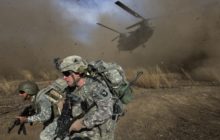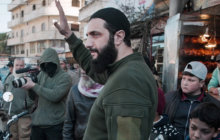FRONTLINE reports from inside America’s largest companies on how the risk of climate change legislation is rattling big business and on their struggle for survival.
“It’s too bad weasely answers can’t somehow be converted into clean energy, because Martin Smith, the “Frontline” producer and reporter, elicits a lot of them in “Heat,” his savvy investigation of global warming and our chances of stopping it…”
– Neil Genzlinger, The New York Times
“… Thorough and wide-ranging, “Heat” takes us from India’s cement factories … and the U.N. Climate Change Conference in Bali to the international empire that is Exxon and the chambers of the Congress. …
“It’s enough to make a person turn off all the lights, pull the covers over her head and weep. But that, of course, is the problem. This is exactly what Americans have done for far too long. Or at least this is what “Heat” argues, and it does so quite persuasively…”
– Mary McNamara, Los Angeles Times
“Nobody watches “Frontline” for the comedy, but I found it amusing to see publicists squirm under vigilant grilling. … Students of evasion, double talk and nondenial denials should not miss this.”
– Kevin McDonough, United Features Syndicate
… [P]eerless Martin Smith looks into the main issues of global pollution, the ambivalent role of the U.S. industry and the prospects of environmental change given a new administration. Its typically clear delineations of the issues, it turns out, makes it a perfect choice for pre-election consideration.
– Roger Catlin, Hartford Courant
“”Heat” won’t stop money from talking. Chances are, nothing will. But understanding the complex issues behind all those talking points might at least move more of us to demand a say in the future that seems to be coming, whether we’re ready or not.”
– Ellen Gray, Philadelphia Daily News
“When it comes to climate change, the official word on the campaign trail is optimism. … “Heat,” the “Frontline” documentary that premieres tonight, … functions as a big wet blanket, a sad reminder that, in this country and many others, the sort of change the planet needs has never come easily. This is an in-depth look at the impediments to climate change solutions, with a focus on the political system that has, so far, resisted anything more than tiny, piecemeal efforts…”
– Joanna Weiss, The Boston Globe
MORE



